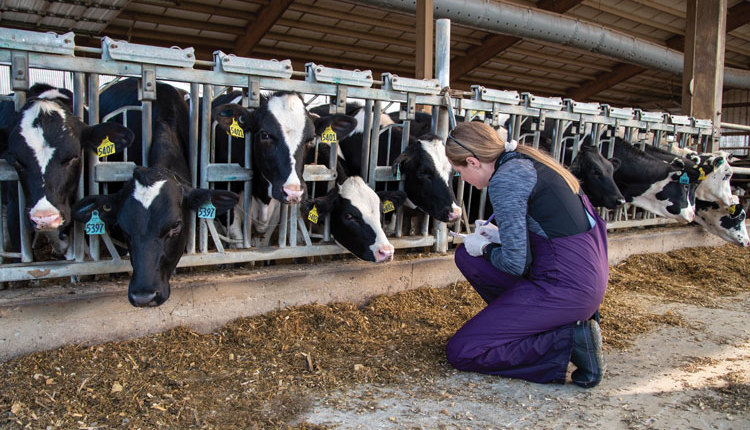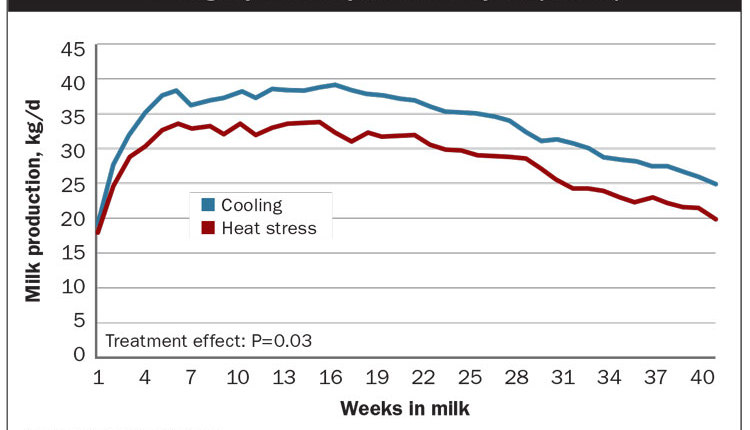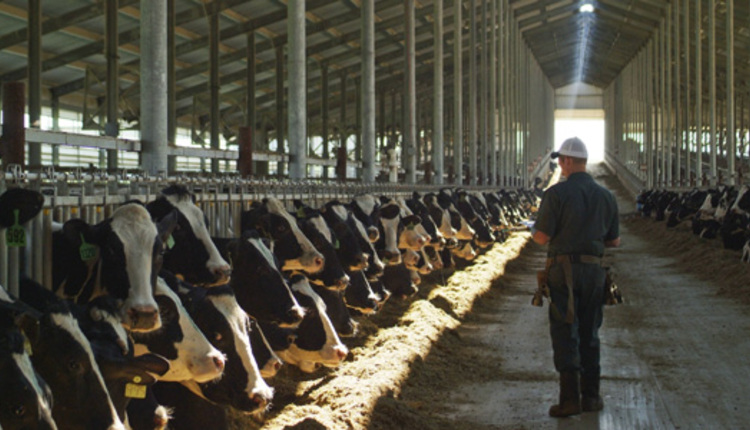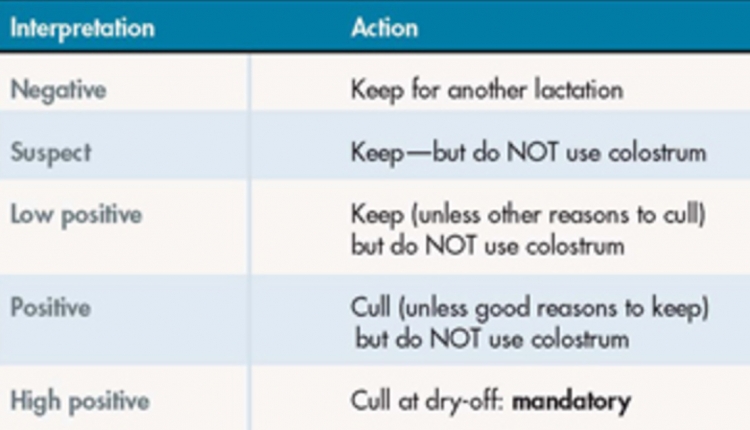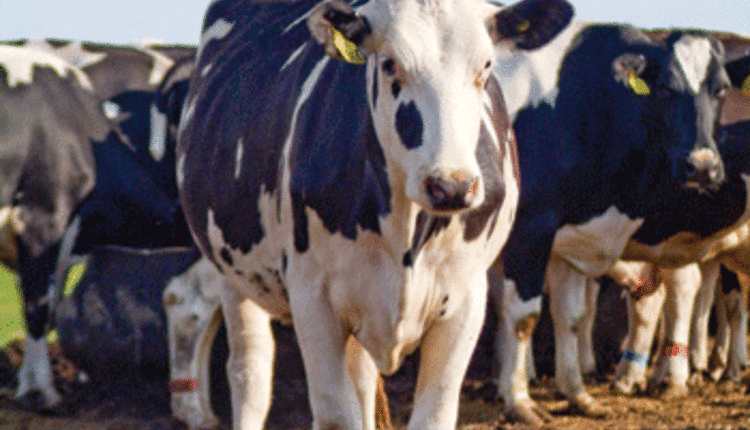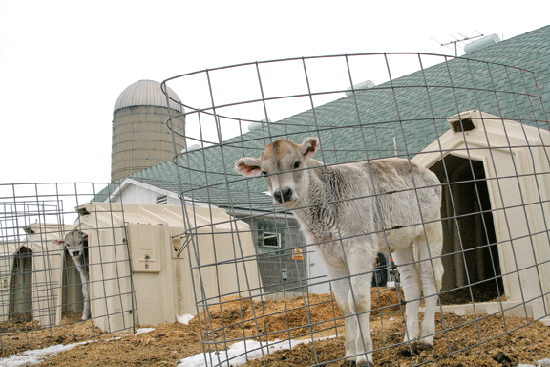
To help limit disease it is important to keep calves individually housed and eliminate contact with other calves, as well as manure from the adult cows.
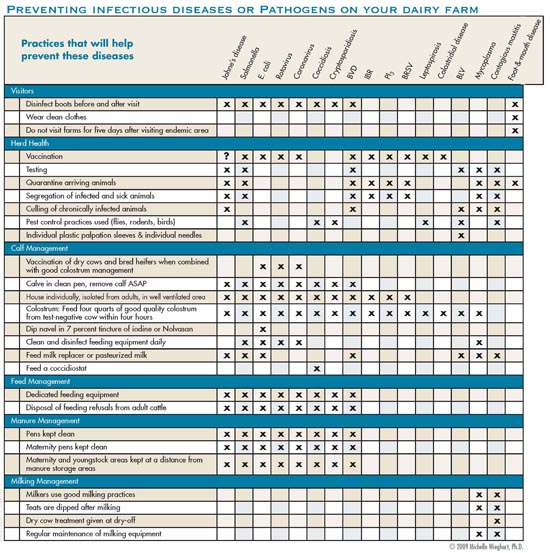
Controlling Johne's disease essentially helps control many other infectious diseases such as Salmonella, Cryptosporidium, and several viral diseases affecting young calves. These diseases can spread from cows to calves through manure, the fecal-oral route of infection transmission.
Limiting disease transmission takes a full-fledged biosecurity plan which involves many different facets. The table below is an excellent resource for use in determining how specific management changes can impact herd health.
Healthier calves lead to more productive cows. Research has proven that cows that are test-negative for Johne's disease have higher lactation and lifetime milk production. And these cows have the least likelihood of producing M. paratuberculosis contaminated milk.
For all these reasons, Johne's disease control measures are simply part of best management practices that should be followed on all farms regardless of Johne's status.







